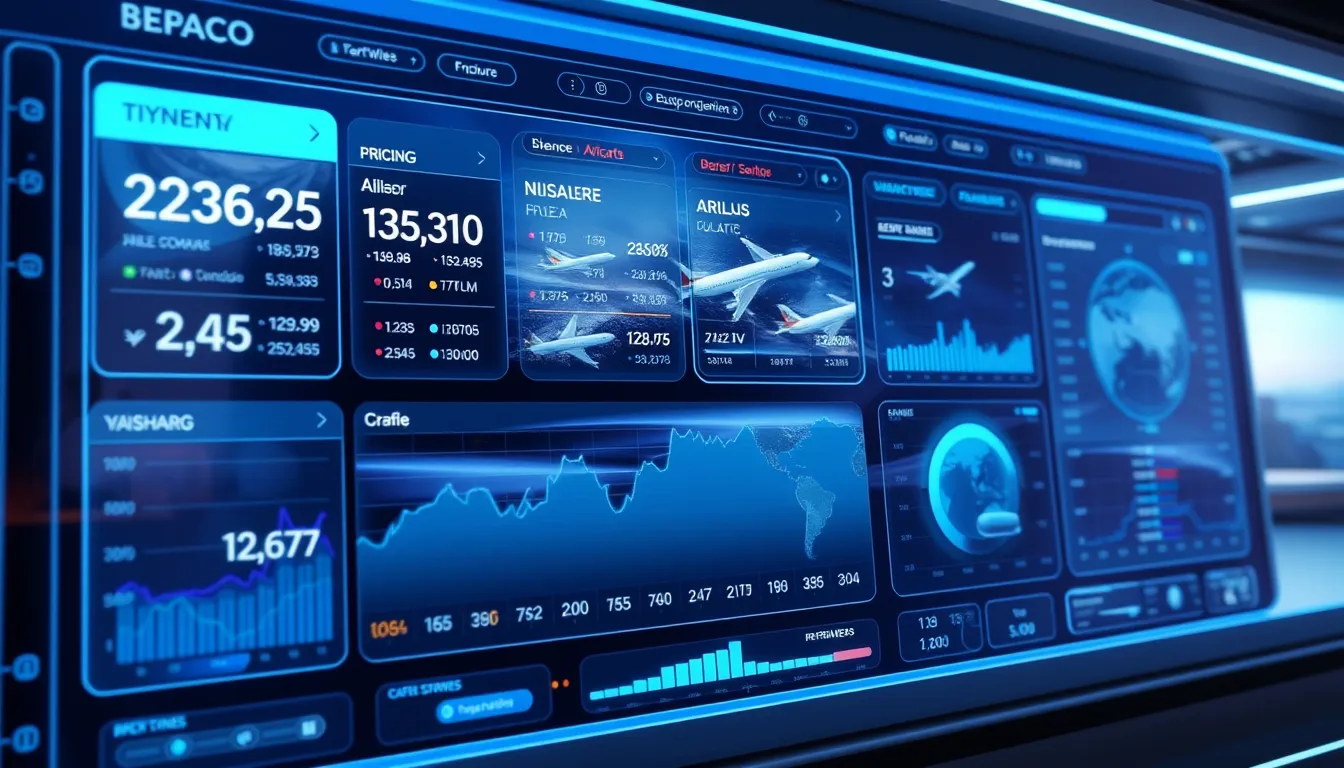Now Reading: Delta Dynamic Pricing: Revolutionizing AI Air Travel Pricing
-
01
Delta Dynamic Pricing: Revolutionizing AI Air Travel Pricing
Delta Dynamic Pricing: Revolutionizing AI Air Travel Pricing

Delta Dynamic Pricing: Revolutionizing AI Air Travel Pricing
Delta is at the forefront of innovation, transforming the air travel industry with its groundbreaking dynamic pricing model. By integrating cutting-edge AI tools, Delta dynamic pricing is redefining how fares are determined, ensuring that ticket prices reflect real-time market conditions. With technology advancements, airlines are now optimizing revenue while offering competitive pricing that benefits both the industry and consumers.
Overview of Dynamic Pricing Transformation
The traditional static pricing model is quickly becoming obsolete. In its place, dynamic pricing powered by artificial intelligence is emerging as a strategic tool in the airline industry. Delta dynamic pricing employs sophisticated algorithms to adjust rates in real time by analyzing numerous factors such as demand fluctuations, seasonal patterns, customer demographics, and even competitive movements. This shift not only optimizes revenue but also tailors fare offerings to meet individual market needs.
How AI is Reshaping Airline Pricing
One of the core elements of this revolution is the integration of AI air travel pricing. Advanced machine learning pricing techniques are at work behind the scenes, consistently evaluating and adjusting fares. Here’s how AI is reshaping airline pricing:
- It continuously monitors market dynamics and demand indices.
- It employs dynamic fare algorithms for immediate fare recalculations.
- It provides personalized pricing based on historical travel data and current trends.
This automated fare adjustment technology delivers transparency, as passengers receive pricing that more accurately reflects market conditions, leading to greater trust in airline operations.
Machine Learning Pricing and Dynamic Fare Algorithms in Action
By embracing machine learning pricing tools, Delta is pioneering real-time fare adjustments that take into account a myriad of variables. Through dynamic fare algorithms, airlines can:
- React to sudden changes in demand without human intervention.
- Offer personalized promotions based on individual travel behavior.
- Balance profitability while ensuring competitive pricing.
These advancements support airline revenue optimization, ensuring that Delta dynamic pricing not only supports the airline’s financial health but also enhances the consumer travel experience. For more details on airline strategies and industry benchmarks, visit the official Delta website at Delta.
Benefits of Dynamic Pricing for Air Travel and Consumer Impact
The move to AI-driven pricing systems presents several significant benefits:
- Enhanced transparency in automated airline pricing.
- Smarter allocation of seats and fare classes.
- Fairer and more flexible ticket prices that respond to market demands.
Consumers can enjoy the advantages of a system designed to reflect true market conditions. With Delta dynamic pricing, travelers experience reduced instances of overpricing and underpricing, leading to more equitable fare setting that adapts to seasonal trends and specific travel days. This model not only boosts customer satisfaction but also aids in predicting market behaviors for future trends.
Future Outlook and Next Steps
The evolution of AI air travel pricing is just beginning. As more airlines invest in similar technologies, the concept of automated fare adjustment technology will continue to gain momentum. Key upcoming trends include:
- Integration of more robust predictive analytics and risk management tools.
- Expansion of personalized pricing models that cater individually to frequent travelers.
- Strengthened regulatory frameworks ensuring transparency and fairness in dynamic pricing mechanisms.
In addition to industry developments, Delta’s initiative is paving the way for more consistent algorithm updates and enhanced system safeguards. This proactive strategy ensures that while the operation remains profitable, it also adheres to ethical standards and consumer protections. For ongoing insights into market trends and technological innovations, reputable sources such as the International Air Transport Association (IATA) can be visited at IATA.
Conclusion
Delta dynamic pricing is a powerful example of how technology is reshaping an industry. By leveraging AI air travel pricing and machine learning pricing innovations, Delta is setting new standards in airline revenue optimization. This transformative approach not only streamlines operations but also creates a more dynamic, fair, and competitive marketplace for travelers. As the adoption of dynamic fare algorithms increases, airlines can anticipate improved customer satisfaction and operational excellence.
The future of air travel pricing is digital, and Delta is leading the charge with a commitment to transparency, efficiency, and continuous improvement. With these advancements, the industry is moving towards a more interconnected and data-driven future, ensuring that both the market and the customer receive maximum benefits from innovative pricing strategies.

























